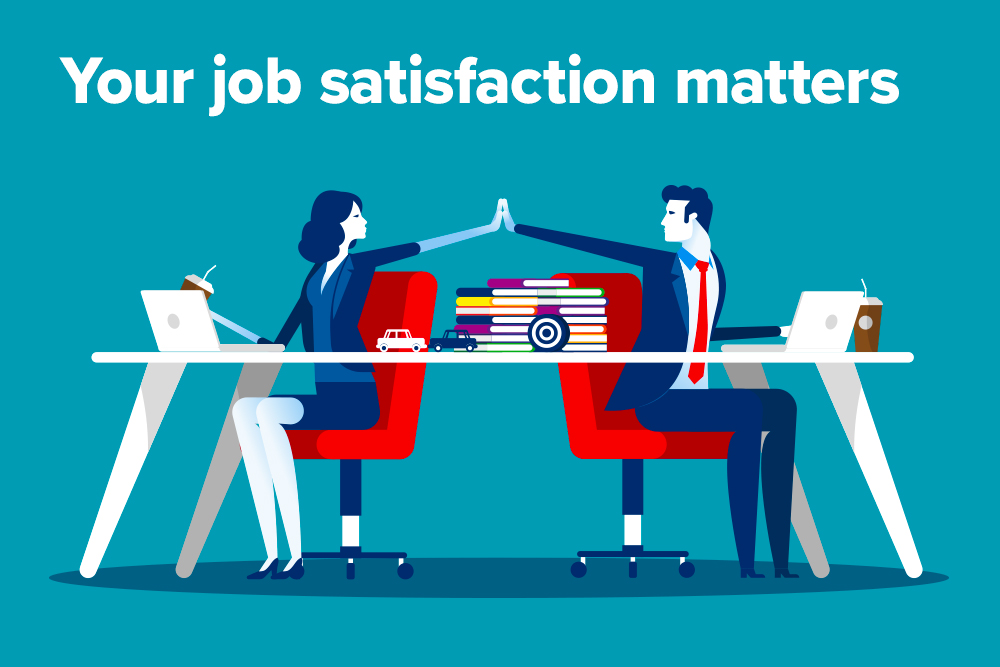For many of us, the workplace is like a second home. Built around the connections we have with our bosses and peers, we thrive as individuals and communities when these relationships are strong and dynamic. But when they are not, they can impact our quality of work as well as our mental state.
Let’s face it, it’s never a good feeling to deal with a boss who constantly shuts you down and speaks to you in a condescending manner. Or worse, when your colleague tries to throw you under the bus at any given opportunity. Such instances are highly indicative of a broken work relationship.
Make no mistake, a rocky relationship with your boss or colleague can go from bad to worse if you neglect it. For this reason, it’s important to first acknowledge that there is an issue. Only then can you ask key questions that will help you take the next step.
What was the root cause of this falling-out? What responsibility do you have in the rift? What will happen if you fail to address it?
It’s important for you to acknowledge the issue and move towards finding solutions to mend broken fences. Here’s why.

When you are at odds with a boss or a co-worker, there’s a high chance that there is not enough trust in the relationship. This lack of trust can stem from not being able to speak your mind freely in fear of being judged or ridiculed. Or perhaps you may be feeling hurt by the other person’s actions believing that they were deliberate.
If the level of trust is low in a professional relationship, people tend to withdraw their level of involvement and engagement. Ultimately, work standards might falter and people no longer feel invested in what they are doing.
Mr Arun Sundar, chief strategy officer of relationship analytics provider TrustSphere, says: “The absence of trust is not only detrimental to the organisation’s existence and growth, but also to employee morale and well-being. In an age when people spend more time with their colleagues than their family, the relationships or lack thereof have a stronger impact on employee wellbeing and health than ever before.”
To rebuild trust, start by stepping into the other person’s shoes to see their point of view. What could be driving them to act or say things the way they do? Are they seeing something that you’re not?
Conversely, if you’ve done something to lose the trust of someone, start a conversation to fix the fractures. But to do this, establish a few ground rules. First, speak in a respectful manner. Use a calm, measured tone and avoid being sarcastic or aggressive.
Most of all, genuinely listen to the other person with an openness to understand and empathise where they are coming from. While such conversations are hard to initiate, doing so will help pave the way for differences to be resolved.
Read Also: Practical Tips on How to Build Trust at the Workplace

It is vital to stay happy and productive in what you’re currently doing. If a relationship has gone south, it may create a stressful and unhealthy atmosphere.
No one wants to work in a toxic environment, not least you. So take the first initiative in resolving things for the sake of your own sanity. Try extending an olive branch to a boss or colleague whom you’re at loggerheads with.
Not only does it show you can put your pride aside, it demonstrates your ability to approach relationships in a mindful, values-driven and productive way – developing what we call emotional agility. By managing our thoughts and emotions through this critical skill, you could experience less stress, reduced errors, innovative thinking and better performance.

A change in your own perspective can also offer alternative actions to turn things around when a work relationship has soured. This is a great opportunity to ask yourself: ‘how do I wish to grow as an individual?’
Will your response to the other person help you become more aware of your own emotions, strengths and weaknesses? The first thing you should do is accept the invitation to go inward and learn how to shift the focus from being “right” to do “what’s right”.
Read More: Stress at Work: 6 Tips For Dealing With a Toxic Workplace
Instead of letting agitation get the better of you, keep calm and re-evaluate the factors that have contributed to your feelings. Ultimately, this can help make your work relationships more productive, not to mention add value to your professional development.
Whether it’s to mend fences or become a better version of yourself, there are many ways to manage and repair professional relationships. But sometimes making the first move could make a world of difference.














